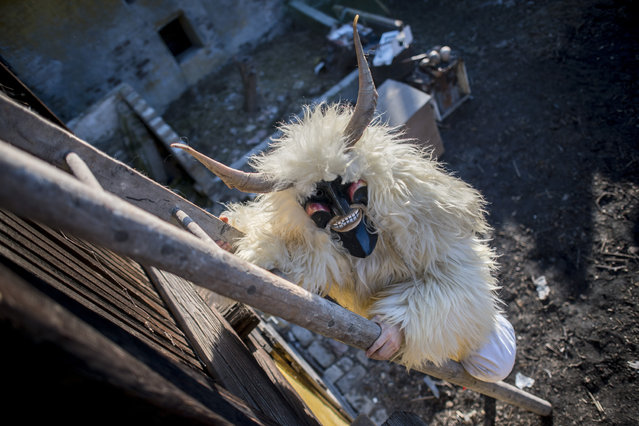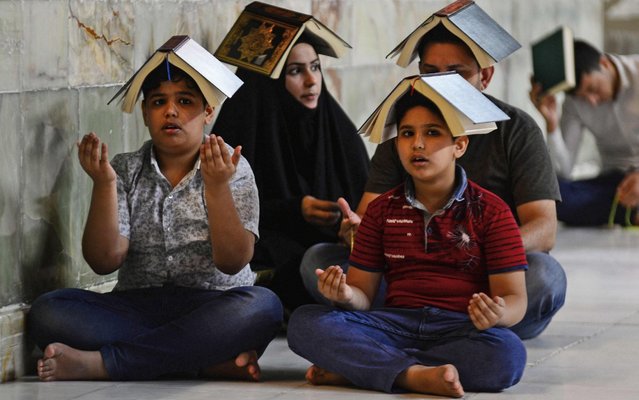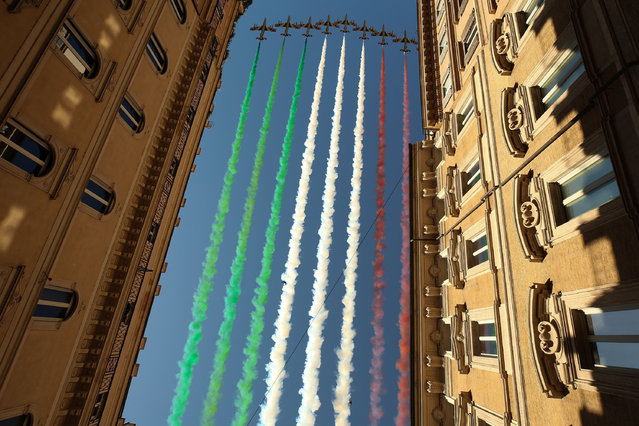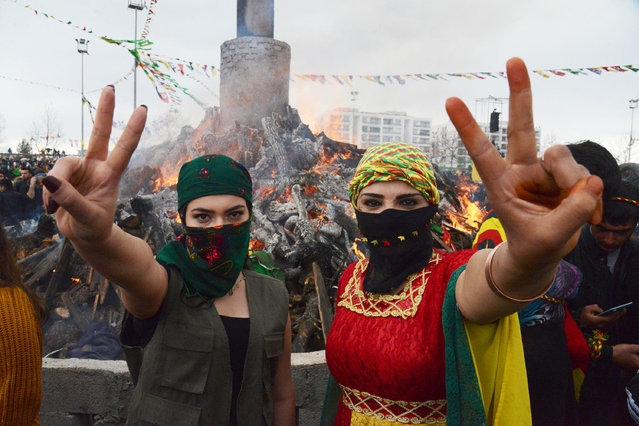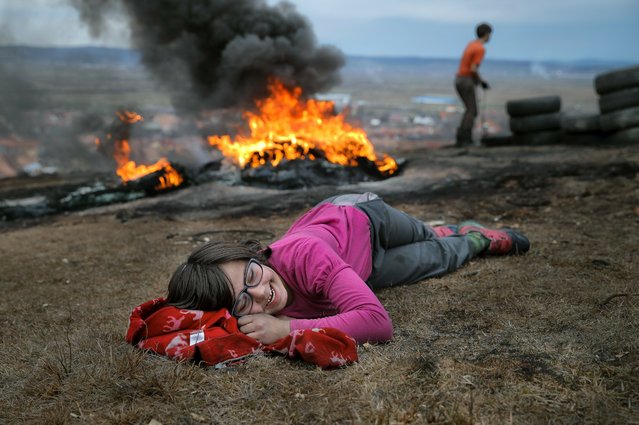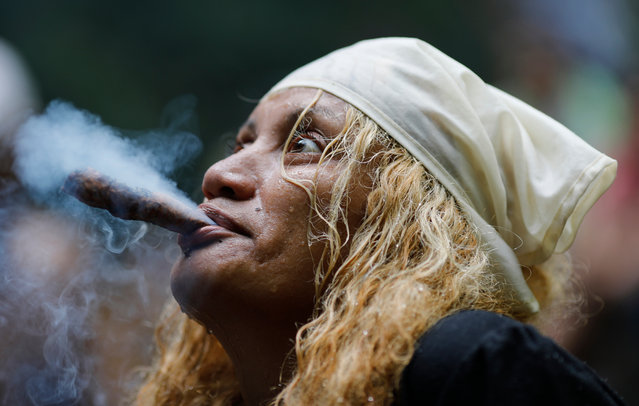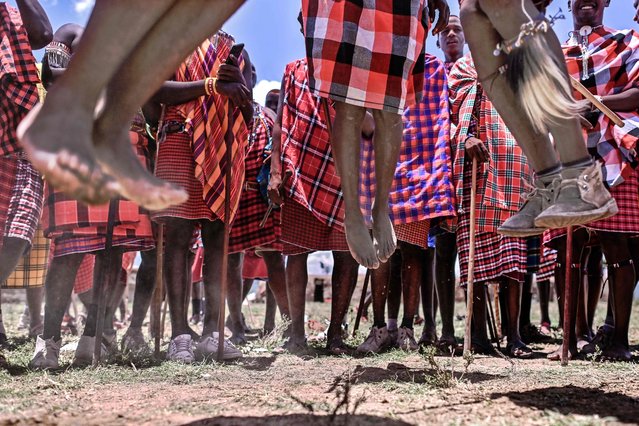
Men from the Kenyan Maasai tribe perform a traditional jumping-ritual among fellow members of a common age-set as they observe a rite of passage to mark the transition of an age-set to cultural junior elder from Moran (Maasai for warrior age-set) at a manyatta or traditional homestead built specifically for the ceremony near Lemek town within the Masai-Mara National Reserve ecosystem in Narok county February 27, 2021. (Photo by Tony Karumba/AFP Photo)
23 Mar 2021 09:13:00,post received
0 comments

